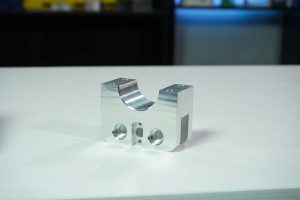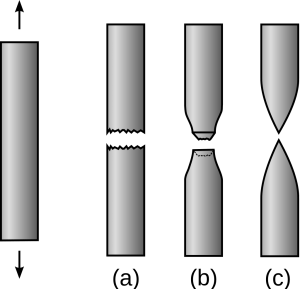Introduction to Delrin Material
Delrin, formally known as polyoxymethylene (POM), is an engineering thermoplastic commonly utilized for precision parts that require high stiffness, low friction, and excellent dimensional stability. Characterized by its high tensile strength, durability, and resistance to abrasion and moisture, Delrin is a versatile material suitable for a myriad of applications ranging from automotive components to consumer electronics. It operates efficiently under a wide temperature range, which coupled with its natural lubricity, makes it a preferred choice for gears, safety restraints, door systems, and other mechanically demanding operations.
Chemical Composition and Properties of Delrin
Delrin, formally known as polyoxymethylene (POM), is composed of repeating –CH2O– units derived from the polymerization of formaldehyde. Its highly crystalline structure imparts a remarkable set of properties including high tensile strength and rigidity which are maintained over a wide temperature range. This engineering plastic also exhibits low friction coefficients alongside excellent dimensional stability, making it suitable for intricate mechanical parts that require precision. Moreover, due to its resistance to solvents and chemicals, Delrin can maintain performance in challenging environments.
Manufacturing Process of Delrin
The manufacturing process of Delrin begins with polymerization, where monomer molecules, specifically formaldehyde, are chemically reacted to form long chains of polyoxymethylene – the underlying structure of Delrin. This step is crucial as it dictates the molecular weight and crystallinity of the final product, thereby influencing its physical properties. Subsequently, post polymerization, the raw polymer undergoes extrusion where it is melted and formed into desired shapes. After cooling, the solidified strands are cut into small pellets which constitute the final product, ready for various industrial applications. Each phase from selecting raw materials to pelletizing ensures that Delrin possesses characteristics such as high stiffness, low friction, and excellent dimensional stability.
Common Uses of Delrin
Delrin is extensively utilized in industrial applications, notably for precision parts that require high stiffness, low friction, and excellent dimensional stability. An example of such an application is the manufacturing of gears, especially those used in fuel systems for the automotive industry where chemical resistance and durability under physical stress are crucial. In consumer products, Delrin is often found in durable mechanical components like zippers and watch bracelets due to its toughness and wear resistance. These properties make it ideal for items that undergo regular use and movement, ensuring longevity and reliability of the final product.
Advantages of Using Delrin Over Other Materials in Terms of Durability and Environmental Resistance
Delrin, a thermoplastic polymer, stands out for its superior durability compared to many metals and other plastics. It possesses high tensile strength, rigidity, and toughness which often translates into longer-lasting components under mechanical stress and strain. Unlike some metals that may corrode or succumb to environmental factors such as moisture or temperature changes, Delrin exhibits exceptional resistance to a wide range of adverse conditions. Its inherent low moisture absorption ensures stability in damp environments, while its resilience to solvents and chemicals makes it a practical choice in chemically harsh scenarios. Moreover, Delrin is resistant to ultraviolet (UV) radiation, enhancing its suitability for outdoor applications where direct exposure to sunlight can degrade other materials. These attributes make Delrin an advantageous material when both performance and longevity are critical considerations.
Maintenance and Care for Delrin Products
Cleaning of Delrin components should be done with care, avoiding harsh chemicals which can compromise the material’s integrity. Mild soap and lukewarm water are ideal for general cleaning, followed by a thorough rinse and gentle drying to prevent water spots. Handle Delrin products with clean hands free of oils or any abrasive materials that could cause scratches. To prolong the lifespan of Delrin items, it is advisable to store them away from direct sunlight and extreme temperatures, as prolonged exposure can lead to deformation or discoloration. When not in use, keeping Delrin parts in a neutral environment where they are not subject to stress will help maintain their dimensional stability and strength.
Potential Disadvantages or Limitations of Delrin
Despite its robust characteristics, Delrin is not without its limitations and may not be the ideal material choice in certain applications. For example, Delrin possesses a lower thermal resistance compared to some other engineering plastics, which can limit its use in scenarios involving prolonged exposure to high temperatures. Additionally, Delrin’s chemical resistance varies; it is susceptible to attack by strong acids, bases, and organic solvents like chlorinated hydrocarbons, potentially leading to degradation if used in environments where these substances are present. In situations requiring compatibility with such chemicals or specific environmental conditions, materials more resilient to chemical corrosion and temperature extremes might need to be considered.
Innovations and Future of Delrin in Industry
Current research trends in the field of engineering polymers like Delrin focus on enhancing its already remarkable attributes such as strength, rigidity, and low friction. Scientists are working on improving its resistance to chemicals and temperature variations to further extend its applications across various industries. Emerging applications for Delrin include its potential use in advanced robotics due to its durability and precision component fabrication. Additionally, environmental sustainability drives innovation; researchers aim to create bio-based or recyclable versions of acetal resins to align with future eco-friendly manufacturing practices. This move towards green materials presents a promising horizon for Delrin substitutes which cater to an ever-growing demand for ecologically responsible industrial solutions.



